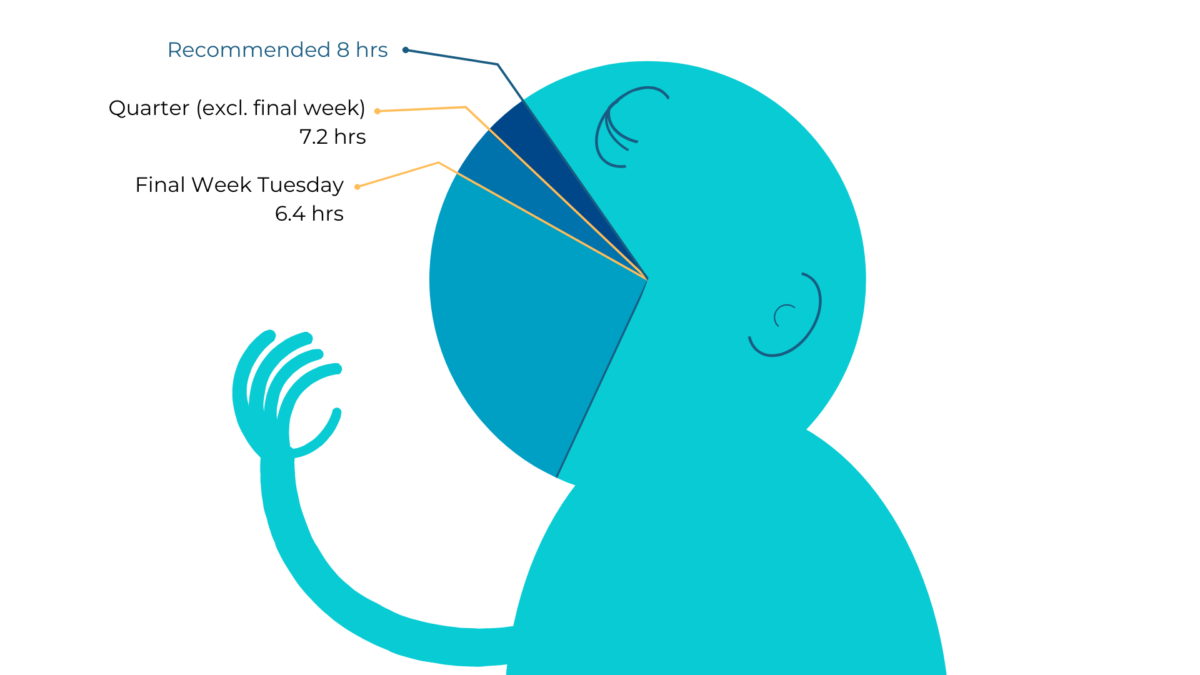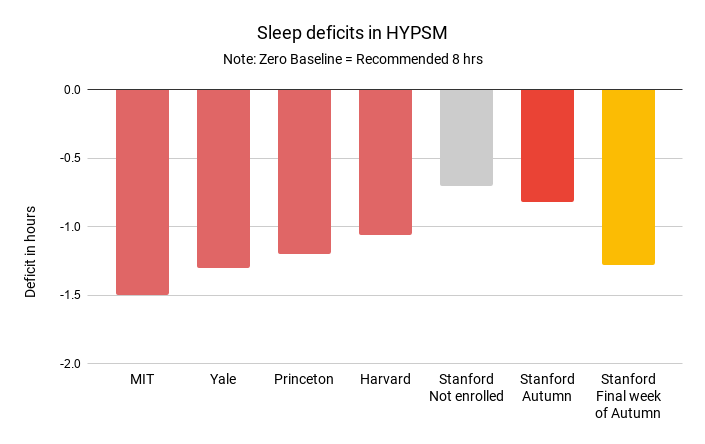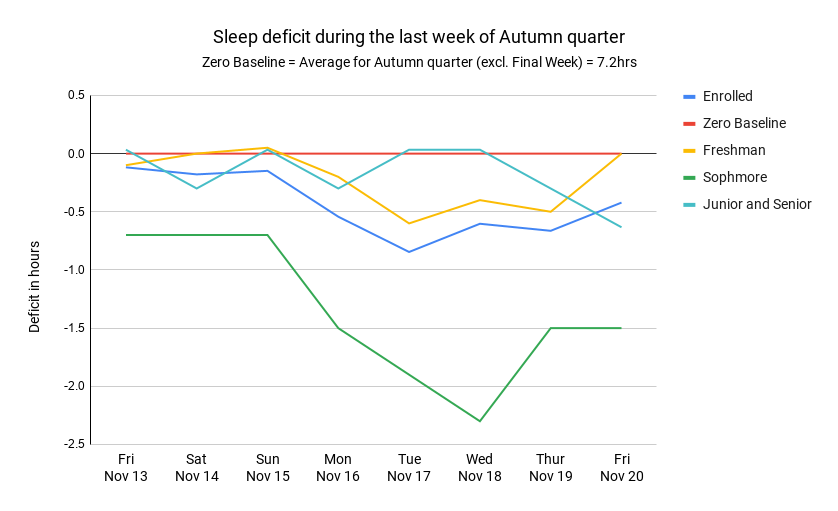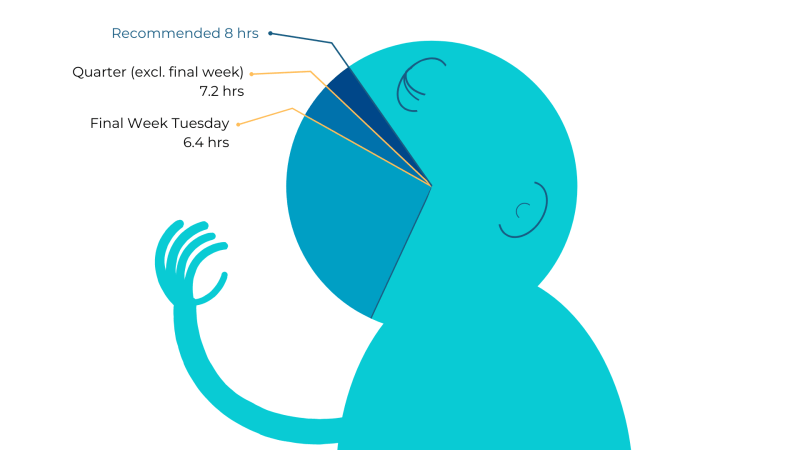As a freshman who has survived fall quarter, deprived of sleep and without the cathartic benefits of the Primal Scream, I felt that this holiday break was a good time to reflect on how rough the finals week was. Or wasn’t.
Here’s what I gathered from an informal survey of 42 students.

Respondents reported sleeping for seven hours and 12 minutes, on average, during the first nine weeks of the quarter, which falls within the recommended sleep duration of 8 hours. Tuesday was the worst day of the finals week, averaging six hours and 24 minutes, almost an hour lower. Overall, not all that bad.
Let’s compare that to the published historical data for our peers at Harvard, Yale, Princeton, and MIT (HYPM). Folks at the Stanford Center for Sleep Sciences and Medicine (the “birthplace of sleep medicine”) will be happy to know that the verdict again is not bad at all.

Purists may question the merits of comparing historical HYPM data to current Stanford… er… “Zoom University” (as one respondent put it) performance. However, until HYPM data for this “online” semester becomes available, this is the best we can do. A survey respondent commented that “lack of sleep was primarily due to being in a different timezone” from PST.
Being situated 160 longitudinal degrees away from Palo Alto, I agree with that. But I don’t have the data to establish a correlation between time zone difference and sleep deficits. Moreover, getting eight hours of sleep during daytime may not even make up for the circadian misalignment, according to the American Psychological Association.
Now, for the gory details of the final week. Tuesday night seems to have been the worst — not Wednesday (as it was for me). But it quickly improved from there. Looking at the graph, I am bracing myself for sophomore year.

Note that the zero baseline in this graph (7.2 hrs) is the average sleep obtained during the previous nine weeks of the quarter. The baseline is not the recommended duration of eight hours, in which case our sleep deficits are worse, increasing by about an hour.
I hope the week after finals was well spent paying off the accumulated sleep debt (as it certainly was for me).
Happy holidays!
Note: The data on sleep deficits from peer institutions can be found here: Harvard, Yale, Princeton, MIT). Furthermore, the data on Stanford students collected for this article was not a random sample of the student population so results should be treated with caution (the survey respondents were within two degrees of separation from me).
Please contact Niveditha Iyer at nivsiyer ‘at’ stanford.edu.
